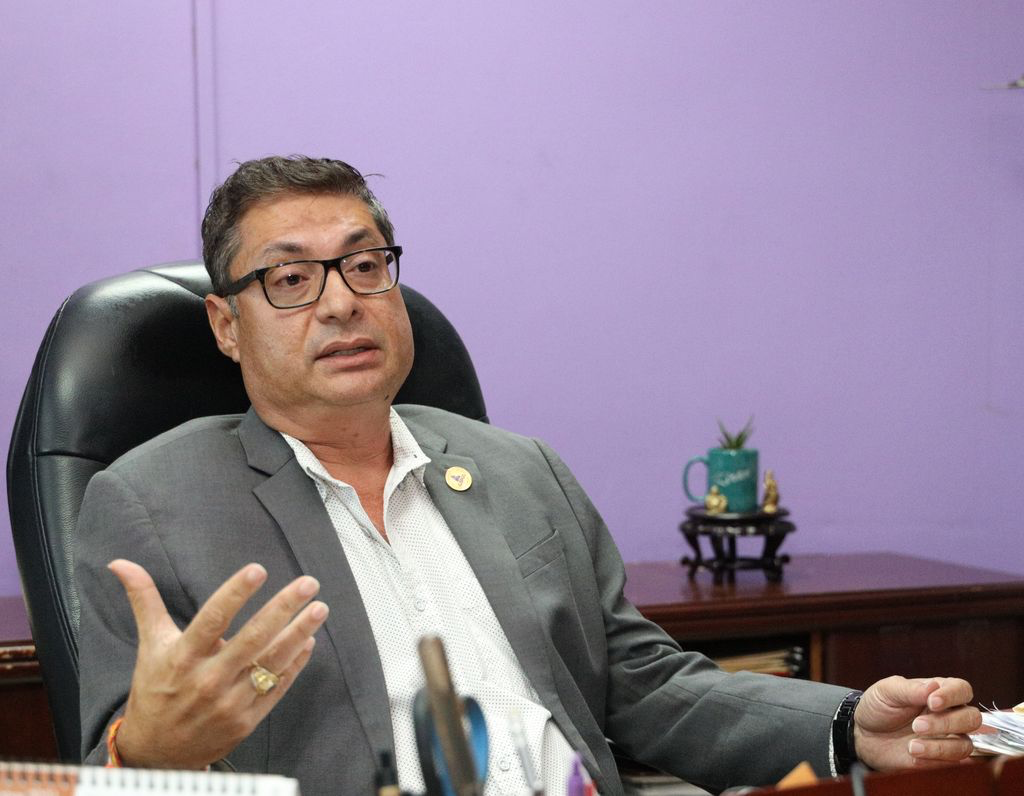(Trinidad Guardian) T&T is likely to see an exodus of businesspeople if the Government fails to meet with stakeholders to address the crime scourge. This is the view of President of the Greater San Fernando Chamber of Commerce Kiran Singh as he responded to National Security Minister Fitzgerald Hinds’s statement that generating a crime plan was not the minister’s responsibility.
Several heads of business chambers were contacted by Guardian Media, all of whom called on the National Security Council to hold meetings to hammer out anti-crime strategies.
Singh said businesspeople were easy targets, particularly those small and medium business owners who could not afford armed security guards.
He said, “We heard from the Commissioner of Police about reducing crime by June but while we wait on that, the criminals are taking serious advantage of us.
“Crime is now a scourge and businesspeople are afraid. Home invasions have increased exponentially. We took the advice to lock up our stores and go home and stay indoors but now bandits are attacking innocent people in their homes in the dead of night.”
Singh said that the National Security Council, Prime Minister Dr Keith Rowley, and the National Security Minister should come out and speak to citizens who are living in fear.
He said guns were coming in through legal ports of entry and it was still uncertain whether scanners were operational and whether containers were being checked.
“Customs is a law unto themselves and that office needs to be revamped,” Singh said.
“We have porous borders. We are still waiting on the state agencies to get their acts together to prevent guns from coming into the country. This is killing our people and ruining businesses and we feel totally helpless in how the authorities deal with crime which affects the psyche of our people.”
The coordinator of the Confederation of Business Chambers Jai Leladharsingh said Hinds should be meeting with stakeholders to discuss an anti-crime plan.
“There are people in UWI who should be consulted, criminologists, economists and business leaders, joint chambers,” he said.
He also called on Hinds to be empathetic towards the citizenry.
“The minister has to have more empathy for businesses and what citizens are currently facing. It’s not a matter of us versus them. The minister should give assurances that outline things that are being done. They need to come forward and talk with the country to have a proper engagement and have meetings to work out a plan as it relates to national security matters and crime,” Leladharsingh said.
The death penalty must be reinstated–Charran
Chairman of the Confederation of Regional Business Chambers Vivek Charran, meanwhile, said Hinds has to be part of the machinery that coordinates a fight against criminals.
Charran called for the death penalty to be reinstated.
“It is the conviction rate for homicides and serious crimes that removes the criminals from the streets decisively, and that is why we are asking for the death penalty as a deterrent because simply spending the rest of their lives in jail and still ‘calling shots’ and causing mayhem from behind bars at taxpayers expense is not helping.”
He said improvements must be made to the criminal justice system.
“Why are witnesses being killed and intimidated? If the police apprehended the people that invaded your home would you go to court and face them if you knew they were part of a gang that could get to you even if they were behind bars?” he asked.
Noting that the prison service has its own challenges, Charran said there must be a plan to improve detection and conviction.
He said the Government must coordinate all aspects of the crime-fighting machinery.
Meanwhile, criminologist Dr Randy Seepersad said it was important to have a plan when dealing with crime.
“A crime plan is really very important and I consider it to be something that is indispensable because it allows you to focus and channel resources in a deliberate way on particular core problems rather than taking a more general approach,” he said.
Without a plan, anti-crime strategies can be ‘hit and miss’.
He said stakeholders should come together to identify core issues such as illegal gun entry, gangs, detection rates, corruption, delays in the criminal justice system, and the state of prisons and develop strategies to address the core problems.
“You can develop solutions that are practical and tangible and have outcomes that are measurable so that you can actually evaluate and see whether your plan is working to remedy the problems you have identified,” Dr Seepersad said.

